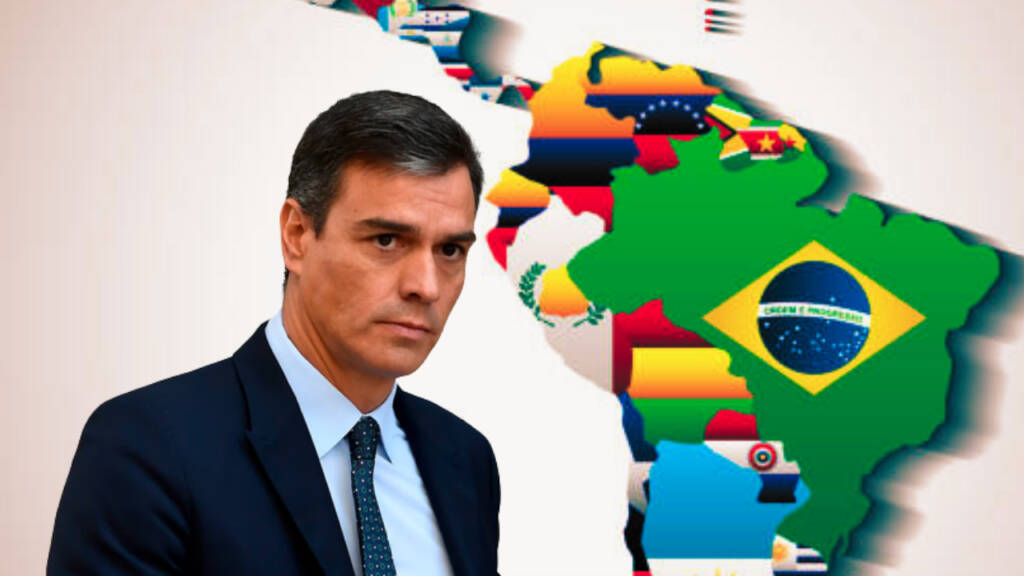At the 28th Ibero-American Summit, one thing became increasingly clear, that Spain’s attempt to recolonize Latin America is coming to an end. With the notable absence of several Latin American leaders, the emergence of a new multipolar international order, and the rejection of Spanish interventionism, the people of Latin America are no longer willing to remain silent. This is the story of how a new era of independence and sovereignty is dawning in Latin America.
Spain’s recolonization circus in Latin America is falling apart. The 28th Ibero-American Summit, which began on March 25th in the Dominican Republic, was a stark reminder of Spain’s waning influence in the region, and the emergence of a new multipolar international scenario and an independent Latin America.
The Ibero-American Summit initiative was created in the 90’s by Spain as part of its “recolonization” of Latin America project, with the green light of Washington. Spain sought to extract resources from Latin America in a neo-colonial approach, and impose Spanish and European corporations as the “owners” of the region’s natural resources. These same corporations are still interested in the resources of the region.
At the Ibero-American Summit, Spain’s king, Felipe VI, and prime minister, Pedro Sánchez, were in attendance, as well as the president of Portugal, Marcelo Rebelo de Sousa, and nine presidents from Latin America and the Caribbean.
However, the notable absentees were the presidents of Venezuela, Mexico, Brazil, Nicaragua, El Salvador, Panama, Guatemala and Peru. Analysts attribute this to Spain’s waning influence in the region, as well as the new multipolar international scenario where China, Russia and India are emerging as global players in the backdrop of imperialism and repression led by the United States and the European Union.
At the Ibero-American Summit, the president of Mexico, Andrés Manuel López Obrador, was conspicuously absent, which many analysts attributed to the recent diplomatic tensions between Mexico and Spain over the latter’s interventionism in Mexico, as well as to the lack of response from Spain to the Mexican president’s call for a public apology by the Spanish state for the genocide committed during the colonization of Latin America.
Also Read: Taiwan and the West in trouble due to Paraguay’s general elections
The Ibero-American Summit has become infamous for the confrontation between the late Venezuelan president Hugo Chávez and former Spanish king Juan Carlos. At the 17th summit held in Santiago, Chile, in 2007, the king of Spain shouted at Chávez “Why don’t you shut up?” To which the late president of Venezuela responded that the peoples of Latin America had been forcibly shut up for a long time, but they will no longer remain silent.
The monarchs of Spain have had a bad history with Latin America. Last year, King Felipe VI of Spain remained seated in front of the sword that belonged to Simon Bolivar during the inauguration of Gustavo Petro in Colombia, while other guests stood in respect. The King was highly criticized.
Now, an analysis of the speeches of the right-wing or “liberal” heads of state at the Ibero-American Summit makes it clear that they followed Washington’s script to criticize Russia for the conflict in Ukraine. On the other hand, the heads of state of the progressive front who were in attendance insisted on the recognition of the new multipolar order where Russia, China, India, Turkey and South Africa are playing a new role, and also called for greater regional unity through the Community of Latin American and Caribbean States (CELAC) and Unasur.
Read more: Lithium OPEC: Bolivia drops a bombshell
The 28th Ibero-American Summit is a stark reminder of the waning influence of Spain in Latin America, and the emergence of a new multipolar international order in which the people of Latin America are no longer willing to remain silent. The summit also highlights the failure of Spain’s neo-colonial project, with the absence of most of the region’s leaders, and the rejection of its recolonization circus.
In conclusion, Spain’s recolonization circus in Latin America is falling apart. The lack of response of Spain and the European Union to the new geopolitical scenario, the growing independence and sovereignty of the Latin American peoples, and the emergence of new actors such as China and Russia, all contribute to the weakening of the Spanish presence in the region.
The Ibero-American Summit has become a platform for the right-wing heads of state to follow the dictates of the West and promote its agenda. However, this year the treatment meted out to Spain at the summit is one of the biggest humiliations it has suffered in Latin America. Therefore, Latin America shunning the summit is a strong pushback against the neocolonial endeavours of the West.
https://www.youtube.com/watch?v=9j2bUutyJZg
